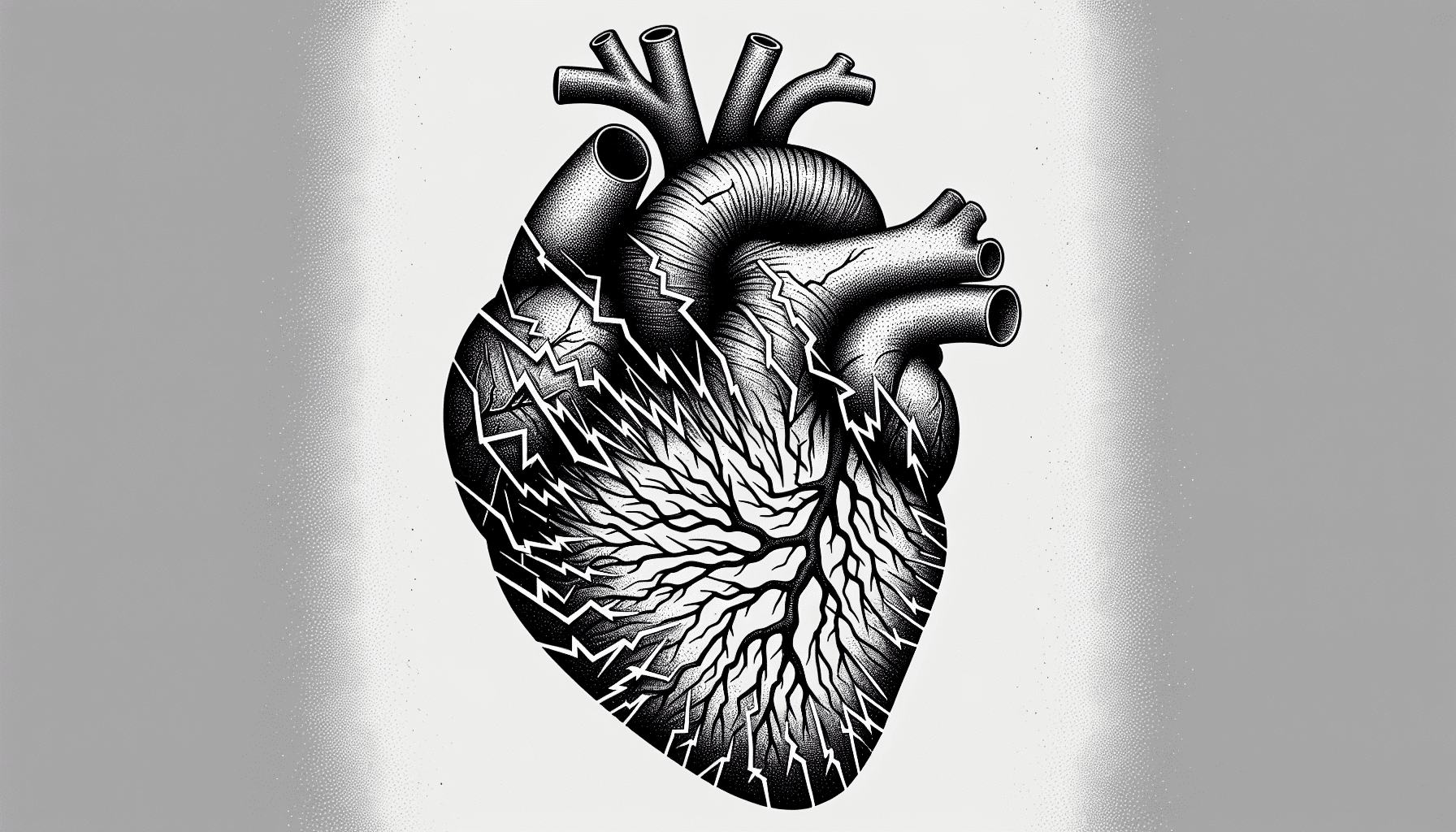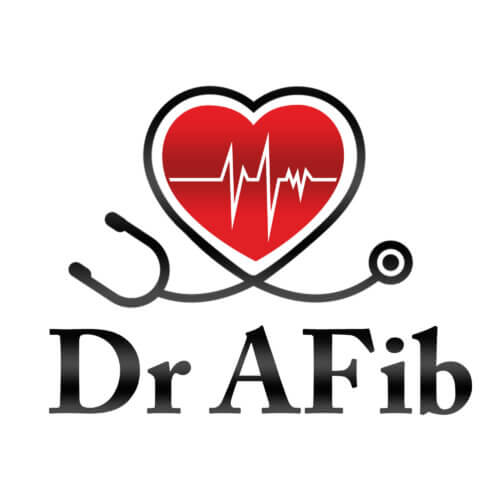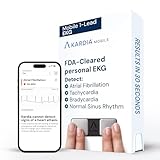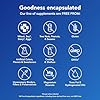Facing the reality of living with AFib means understanding how it affects your daily life and what you can do about it. In this no-fluff guide, we address the essential aspects – from monitoring symptoms and tweaking your daily routine, to managing the accompanying health risks. We aim to help you navigate life with AFib confidently, with relatable advice and supportive strategies that echo the realities of those with the condition.
Key Takeaways
- Atrial fibrillation (AFib) is a heart condition that disrupts normal rhythm and can increase risks such as stroke and heart failure, thus affecting everyday life and requiring careful management through anticoagulation therapies and monitoring of associated health conditions.
- Living with AFib involves building a supportive care team that includes healthcare professionals and personal support from family and friends, as well as lifestyle adjustments to help manage the condition, such as dietary changes, regular exercise, and maintaining a healthy weight.
- Individuals with AFib should develop emergency plans with healthcare providers, understand when to seek medical attention for severe symptoms or complications, and can find inspiration from personal stories of others who have continued to thrive despite their AFib diagnosis.
Understanding AFib and Its Daily Impact

Atrial fibrillation, or AFib, is a condition characterized by a chaotic pulse in the heart’s upper chambers, causing rapid and sometimes irregular pumping in the lower chambers. This irregular rhythm, whether it’s persistent AFib or paroxysmal AFib, can affect your daily life and increase the risk of serious complications like stroke, blood clots, and heart failure.
Imagine a drummer who, instead of maintaining a normal rhythm, suddenly starts playing at a frenzied pace. That’s what happens to your heart during an AFib episode. Healthcare professionals use tools like the EHRA symptom score to measure the impact of AFib on daily life, which affects decisions on whether rhythm or rate control treatment approaches should be implemented.
Living with atrial fibrillation can influence daily activities, but understanding how atrial fibrillation affect one’s life is crucial. Effective stroke prevention with anticoagulation therapies, such eliquis, plays a critical role in AFib management, especially for those with a high stroke risk.
Recognizing Symptoms of AFib
One of the first steps in living with atrial fibrillation is recognizing the symptoms. One common symptom is experiencing heart palpitations, where your heart seems to be fluttering or pounding in your chest. This irregular heartbeat is a result of the disruption in the normal heart rhythm caused by AFib. But, what else should you look out for?
Apart from heart palpitations, other warning signs include a reduced ability to exercise and general feelings of weakness. You might also encounter shortness of breath, even when you’re at rest. If you notice these symptoms, it’s crucial to seek medical attention as they can indicate an irregular rhythm in your heart due to AFib.
The Connection Between AFib and Chronic Health Conditions
AFib doesn’t live in isolation. It often co-occurs with other health conditions such as:
- congenital heart defects
- heart valve diseases
- high blood pressure
- lung diseases
- coronary artery disease
- thyroid disorders
This complex web of interconnections means that managing these underlying conditions effectively is an essential part of managing AFib.
Structural heart issues are a common cause of AFib and can be linked to a variety of heart diseases and other health problems. As such, control of high blood pressure, high cholesterol, and diabetes is crucial. By managing these chronic health conditions, you’re also managing the risks associated with AFib, leading to a healthier life overall.
Forming a Supportive Care Team
Building a support network is crucial for managing AFib effectively. But your care team isn’t just composed of healthcare professionals. It’s a mix of:
- doctors
- nurses
- dietitians
- physiotherapists
- family and friends
This team plays a pivotal role in your journey, providing medical treatment, emotional support, and guidance.
A healthcare provider can help develop a treatment plan, monitor your condition, and adjust your medications as needed. But, living with atrial fibrillation isn’t just about managing physical symptoms. It also involves dealing with emotional responses such as uncertainty, fear, and anxiety. That’s where your family and friends come in. Their understanding, emotional support, and encouragement can be a comforting presence as you navigate the challenges of AFib.
Involving Family and Friends in Your Journey
When diagnosed with a condition like AFib, it’s natural to experience a range of emotions from fear and anxiety to uncertainty and even depression. But remember, you’re not alone in this journey. Your family and friends can provide a strong support system, helping you navigate the daily challenges posed by the condition.
Having someone to talk to about your feelings, accompany you to medical appointments, or even help with daily tasks can be immensely beneficial. But sometimes, you might need professional help to manage mental health issues associated with AFib, such as anxiety and depression. In such cases, reach out to doctors, nurses, or specialized resources. Remember, seeking help is a sign of strength, not weakness.
Collaborating with Healthcare Professionals
Your healthcare provider is a critical ally in your battle against AFib. Regular communication with them is crucial for adapting to the condition and managing it successfully. Whether it’s discussing new symptoms, concerns about medications, or just seeking reassurance, don’t hesitate to reach out.
Continuing treatment for AFib is important to ensure ongoing monitoring of medication effectiveness, risk of clotting or bleeding, and management of any procedures undergone. The frequency of follow-up visits depends on your individual condition and needs. It’s a good idea to prepare for these visits by:
- Noting down any new symptoms or questions you have
- Bringing a list of all medications you are currently taking
- Bringing any test results or medical records that may be relevant
- Being prepared to discuss any lifestyle changes or concerns you have
This can help improve communication and ensure that your concerns are addressed effectively.
Online Patient Support Groups for Atrial Fibrillation
For many individuals living with atrial fibrillation (AFib), finding support and understanding from those who share the same experiences can be incredibly comforting and empowering. Online patient support groups have emerged as vital platforms for exchanging information, offering encouragement, and fostering a sense of community among AFib patients. One standout resource is StopAfib.org, a patient-to-patient support forum that provides a wealth of knowledge and a supportive space for individuals to connect and discuss their condition.
This online community is dedicated to those affected by AFib and features discussions on treatment options, lifestyle tips, and personal stories of managing the condition. Alongside StopAfib, there are numerous other online support groups available on social media platforms and health forums, where members can ask questions, share their journeys, and receive advice from peers and medical professionals alike. These groups often host live webinars, Q&A sessions with experts, and provide up-to-date research news, making them an invaluable resource for anyone seeking to navigate life with AFib.
Managing Risk Factors for a Healthier Life

While AFib can pose significant challenges, making healthy lifestyle choices can reduce the risk of heart disease and may even prevent AFib. These changes include:
- Dietary adjustments
- Regular exercise
- Maintaining a healthy weight
- Managing cholesterol, blood sugar, and blood pressure levels
These changes are critical in the treatment of AFib.
But managing risk factors isn’t just about preventing AFib. It’s also about enhancing your overall health. Some recommended strategies to lower the risk of AFib and improve your overall health include:
- Avoiding tobacco
- Managing stress
- Exercising regularly
- Eating a healthy diet
- Limiting alcohol consumption
Healthcare providers can provide specific recommendations tailored to your individual needs, helping you prevent a repeat episode of Afib.
Maintaining a Healthy Weight and Diet
What we eat has a significant impact on our health, and this is particularly true for individuals with AFib. A heart-healthy diet should include:
- A variety of fruits and vegetables
- Whole grains
- Lean proteins
- Foods low in salt, sugars, saturated and trans fats
Eating a balanced diet doesn’t just help manage AFib but also reduces the risk of heart disease.
Similarly, maintaining a healthy weight is crucial as it helps manage risk factors associated with AFib, including blood pressure and heart health. Remember, every step you take towards a healthier diet and weight is a step towards better AFib management. And with a heart-healthy eating plan, these steps will lead you towards a healthier life overall.
Staying Active with Regular Exercise

Regular exercise plays a protective role against the onset of AFib. Engaging in mild to moderate-intensity physical activity for 150 to 200 minutes per week can lower the risk of AFib. This could mean:
- going for a brisk walk
- cycling
- swimming
- dancing
Anything that gets your heart rate up can help improve blood flow.
But, starting an exercise regimen can be daunting, especially for those newly diagnosed with AFib. You might worry about exercise triggering or worsening your condition. However, stable AFib patients with controlled heart rates can exercise safely without worsening their condition. Remember, though, to start slow and gradually increase intensity. A gradual warm-up and cool-down can also help manage symptoms like shortness of breath during exercise.
Limiting Alcohol and Avoiding Triggers
Certain lifestyle habits, like excessive alcohol or caffeine consumption, can trigger episodes of atrial fibrillation. Alcohol can affect the electrical signals in the heart, increasing the risk of AFib. Therefore, limiting your alcohol intake is crucial.
Similarly, excessive use of caffeine and certain medications can contribute to triggering episodes of AFib. It’s important to identify these potential triggers and consciously avoid them. While it may seem difficult at first, over time, these lifestyle changes can become second nature and significantly reduce the occurrence of AFib episodes.
Take Control Over AFib Naturally
The Take Control Over AFib Online Program is an innovative online initiative designed to empower individuals with atrial fibrillation (AFib) through a step-by-step plan focusing on lifestyle modifications and natural treatments. This comprehensive program offers a structured approach to improving AFib symptoms and enhancing quality of life.
Participants of the program gain access to a wealth of resources, including educational materials that cover the importance of a balanced diet, effective stress management techniques, and the role of regular exercise in managing AFib. The Take Control Over AFib Program is more than just a collection of resources; it’s a journey towards taking charge of one’s health, reducing the impact of AFib on daily life, and ultimately, improving overall well-being.
Learn more about the Take Control Over AFib Program here.
Adjusting Lifestyle for Optimal AFib Management

Managing AFib isn’t just about medication and medical treatments – it’s also about making adjustments to your lifestyle. These changes, from setting realistic and achievable goals to gradually improving your energy levels through exercise programs, play a critical role in AFib management.
You can continue your daily activities, such as driving, without restrictions, provided your AFib is well-controlled. However, before traveling, consult with your doctor to ensure that your travel insurance covers pre-existing conditions for uninterrupted care.
Remember, managing AFib is a lifelong journey, and adapting your lifestyle to suit your condition can make this journey smoother.
Balancing Rest and Activity
Balancing physical activity with rest is crucial for managing energy levels and avoiding fatigue in AFib patients. It’s about listening to your body and understanding its needs. On some days, you might feel energetic and ready to take on the world, while on others, you might need to take it slow and rest.
It’s okay to have off days. Don’t push yourself too hard on these days. Rest, hydrate, and take care of yourself. Remember, managing AFib is not a sprint; it’s a marathon that requires pacing, patience, and perseverance.
Navigating Medication Management
Medication plays a significant role in managing AFib. From anticoagulants to prevent blood clot formation to antiarrhythmic drugs to maintain sinus rhythm, understanding your medication and how to manage it is crucial.
Monitoring your intake of vitamin K-rich foods such as leafy greens is important, especially if you’re on blood thinners like warfarin, as vitamin K can affect the efficacy of the medication. Newer anticoagulants like apixiban, dabigatran and rivaroxaban provide alternatives to warfarin and do not require routine blood tests for monitoring. Remember, effective medication management is a key step towards optimal AFib management.
Monitoring Blood Pressure and Sugar Levels
Regular monitoring of blood pressure is crucial for individuals with atrial fibrillation. High blood pressure can lead to worsening of AFib and related health issues. Therefore, maintaining control over your blood pressure is an essential part of managing AFib.
Establish a routine for blood pressure checks and follow your healthcare provider’s guidelines for optimal management. Regular monitoring not only helps you stay in control of your condition but also provides invaluable information to your healthcare provider, aiding in effective treatment planning and maintaining the health of your blood vessels.
Handling Emergencies and Complications

Despite our best efforts, emergencies and complications can arise when living with AFib. Recognizing the warning signs of an AFib-related stroke is crucial. These warning signs include:
- Sudden weakness
- Numbness
- Difficulty speaking
- Difficulty seeing
If these warning signs are observed, it is necessary to call emergency services immediately.
Time is of the essence in such situations. Seeking immediate medical attention in the event of a stroke related to atrial fibrillation is crucial, as timely treatment can significantly affect the outcome. Remember, in an emergency, every second counts.
Knowing When to Seek Immediate Medical Attention
Recognizing when to seek immediate medical attention is crucial for AFib patients. Severe symptoms such as chest pain, dizziness, and fatigue, especially if these symptoms are acute or worse than usual, necessitate immediate medical response.
Other critical symptoms that require emergency medical care include sensations of chest pressure, shortness of breath, and pain or heaviness in the jaw, arm, or neck. These symptoms could be indicative of a heart attack or sleep apnea. If you experience signs of stroke, such as one-sided weakness, confusion, or trouble speaking, seek immediate medical attention. Early intervention is critical and can significantly impact your health outcome.
Developing an Emergency Plan
Creating an emergency plan for rapid atrial fibrillation involves collaboration with healthcare providers to develop a stepwise approach to managing the condition in an emergency department. Having a plan in place can provide a sense of control and help manage anxiety and fear related to potential emergencies.
This plan should incorporate the latest evidence-based treatment options and follow established guidelines. A practical stepwise algorithm developed by experts in acute cardiovascular care and electrophysiology can streamline and expedite the management of atrial fibrillation in emergency settings.
Personal Stories: Thriving Despite AFib
Hearing from others who have navigated the same journey can be comforting and inspiring. Take Sarann Kraushaar, for example. She enjoyed an active lifestyle but encountered severe exhaustion from routine activities after being diagnosed with atrial fibrillation. Despite initial treatments not being enough to control her AFib, she didn’t give up. She sought specialized treatment and after undergoing successful catheter ablation procedures, she regained control over her symptoms, allowing her to resume traveling and enjoying her active lifestyle.
Sarann’s story is a testament to the fact that AFib can present significant lifestyle challenges, but with proper treatment, individuals can continue to lead full and active lives. It serves as a reminder that a diagnosis of AFib is not the end of the road, but rather, the beginning of a new journey – a journey towards a healthier life despite AFib.
Summary
Throughout this blog post, we’ve explored the journey of living with AFib, from understanding the condition and its daily impact, forming a supportive care team, managing risk factors, adjusting lifestyle habits, handling emergencies, and learning from personal stories. It may seem like a challenging journey, but remember, with the right knowledge, support, and lifestyle adjustments, you can navigate these challenges and lead a fulfilling life. As we’ve seen from personal stories, AFib doesn’t define you. You’re much more than your diagnosis, and with determination and perseverance, you can thrive despite AFib.
Frequently Asked Questions
Can I live normal life with AFib?
Yes, with proper treatment, many people with AFib can lead normal lives. Making lifestyle changes can also have a positive impact on managing AFib.
What is the life expectancy of someone with persistent atrial fibrillation?
The life expectancy of someone with persistent atrial fibrillation varies, but previous research shows that the mean interval from initial diagnosis to death was around 25 years.
How can I calm my atrial fibrillation naturally?
You can calm your atrial fibrillation naturally by practicing deep breathing, engaging in gentle exercise like yoga, and contacting a health professional for guidance in managing your condition. These methods can help lower your heart rate and the number of AFib episodes, as well as reduce inflammation that may contribute to the condition.
What should you not do while in AFib?
To help manage AFib, avoid excessive caffeine and alcohol consumption as they can increase the risk of AFib. Limiting saturated fat, trans fat, salt, and caffeine intake can also help control blood pressure and cholesterol levels.
What are the symptoms of atrial fibrillation?
The symptoms of atrial fibrillation include heart palpitations, reduced exercise capacity, shortness of breath, and weakness. If you experience these, seek medical attention.
The Best Atrial Fibrillation Book
Your Complete Guide To AFib: The Essential Manual For Every Patient With Atrial Fibrillation
(as of March 4, 2026 15:01 GMT -06:00 - More infoProduct prices and availability are accurate as of the date/time indicated and are subject to change. Any price and availability information displayed on [relevant Amazon Site(s), as applicable] at the time of purchase will apply to the purchase of this product.) The A to Z guide on everything you need to know about atrial fibrillation. Written by AFib expert Dr. Percy Morales MD. Over 120 pages of essential information on medications, procedures, and lifestyles modifications for AFib. Easy to read for every patient.
Shop AFib Products on Amazon
KardiaMobile 6L EKG Monitor, Medical-Grade, FDA-Cleared Heart Monitor, 6 Views of The Heart, Results in 30 Seconds, Unlimited Recordings, Works with Smartphones, HSA&FSA Eligible, Pocket-Size
(as of March 4, 2026 20:50 GMT -06:00 - More infoProduct prices and availability are accurate as of the date/time indicated and are subject to change. Any price and availability information displayed on [relevant Amazon Site(s), as applicable] at the time of purchase will apply to the purchase of this product.)
KardiaMobile 1-Lead EKG Monitor, Medical-Grade FDA-Cleared Personal Heart Monitor, Detects Normal, AFib & Arrhythmias, Unlimited Recordings, 30 Second Results, Works with most Smartphones, Pocket-size
(as of March 4, 2026 20:50 GMT -06:00 - More infoProduct prices and availability are accurate as of the date/time indicated and are subject to change. Any price and availability information displayed on [relevant Amazon Site(s), as applicable] at the time of purchase will apply to the purchase of this product.)
Apple Watch Series 9 [GPS 41mm] Smartwatch with Storm Blue Aluminum Case with Silver Sport Band M/L. Fitness Tracker, Blood Oxygen & ECG Apps, Always-On Retina Display
(as of March 4, 2026 21:06 GMT -06:00 - More infoProduct prices and availability are accurate as of the date/time indicated and are subject to change. Any price and availability information displayed on [relevant Amazon Site(s), as applicable] at the time of purchase will apply to the purchase of this product.)
Fitbit Sense 2 Advanced Health and Fitness Smartwatch with Tools to Manage Stress and Sleep, ECG App, SpO2, 24/7 Heart Rate and GPS, Shadow Grey/Graphite, One Size (S & L Bands Included)
(as of March 4, 2026 23:42 GMT -06:00 - More infoProduct prices and availability are accurate as of the date/time indicated and are subject to change. Any price and availability information displayed on [relevant Amazon Site(s), as applicable] at the time of purchase will apply to the purchase of this product.)
OMRON Complete 2-in-1 Blood Pressure Monitor + EKG for Home Use & Upper Arm Blood Pressure Cuff - #1 Doctor & Pharmacist Recommended Brand - Clinically Validated - Connect App
(as of March 4, 2026 15:43 GMT -06:00 - More infoProduct prices and availability are accurate as of the date/time indicated and are subject to change. Any price and availability information displayed on [relevant Amazon Site(s), as applicable] at the time of purchase will apply to the purchase of this product.)
Samsung Galaxy Watch 6 44mm Bluetooth Smartwatch, Fitness Tracker, Personalized HR Zones, Advanced Sleep Coaching, Heart Monitor, BIA Sensor, Health Wellness Insights, Big Screen, US Version, Graphite
(as of March 4, 2026 15:43 GMT -06:00 - More infoProduct prices and availability are accurate as of the date/time indicated and are subject to change. Any price and availability information displayed on [relevant Amazon Site(s), as applicable] at the time of purchase will apply to the purchase of this product.)
Natural Rhythm Triple Calm Magnesium Complex - 120 Capsules, Chelated Magnesium Glycinate, Taurate & Malate, High Absorption Supplement for Sleep, Stress, Muscle & Heart Support, Non-GMO, Vegan
(as of March 4, 2026 23:42 GMT -06:00 - More infoProduct prices and availability are accurate as of the date/time indicated and are subject to change. Any price and availability information displayed on [relevant Amazon Site(s), as applicable] at the time of purchase will apply to the purchase of this product.)
Pure Encapsulations Magnesium (Glycinate) - Supplement to Support Stress Relief, Sleep, Heart Health, Nerves, Muscles, and Metabolism* - with Magnesium Glycinate - 180 Capsules
(as of March 4, 2026 21:07 GMT -06:00 - More infoProduct prices and availability are accurate as of the date/time indicated and are subject to change. Any price and availability information displayed on [relevant Amazon Site(s), as applicable] at the time of purchase will apply to the purchase of this product.)
















![Apple Watch Series 9 [GPS 41mm] Smartwatch with Storm Blue Aluminum Case with Silver Sport Band M/L. Fitness Tracker, Blood Oxygen & ECG Apps, Always-On Retina Display #1](https://m.media-amazon.com/images/I/311xwtp4mFL._SL100_.jpg)
![Apple Watch Series 9 [GPS 41mm] Smartwatch with Storm Blue Aluminum Case with Silver Sport Band M/L. Fitness Tracker, Blood Oxygen & ECG Apps, Always-On Retina Display #2](https://m.media-amazon.com/images/I/41j+8AaUGsL._SL100_.jpg)
![Apple Watch Series 9 [GPS 41mm] Smartwatch with Storm Blue Aluminum Case with Silver Sport Band M/L. Fitness Tracker, Blood Oxygen & ECG Apps, Always-On Retina Display #3](https://m.media-amazon.com/images/I/41jIyxZitnL._SL100_.jpg)
![Apple Watch Series 9 [GPS 41mm] Smartwatch with Storm Blue Aluminum Case with Silver Sport Band M/L. Fitness Tracker, Blood Oxygen & ECG Apps, Always-On Retina Display #4](https://m.media-amazon.com/images/I/41IpNJERjCL._SL100_.jpg)
![Apple Watch Series 9 [GPS 41mm] Smartwatch with Storm Blue Aluminum Case with Silver Sport Band M/L. Fitness Tracker, Blood Oxygen & ECG Apps, Always-On Retina Display #5](https://m.media-amazon.com/images/I/31o17yhfYpL._SL100_.jpg)


































